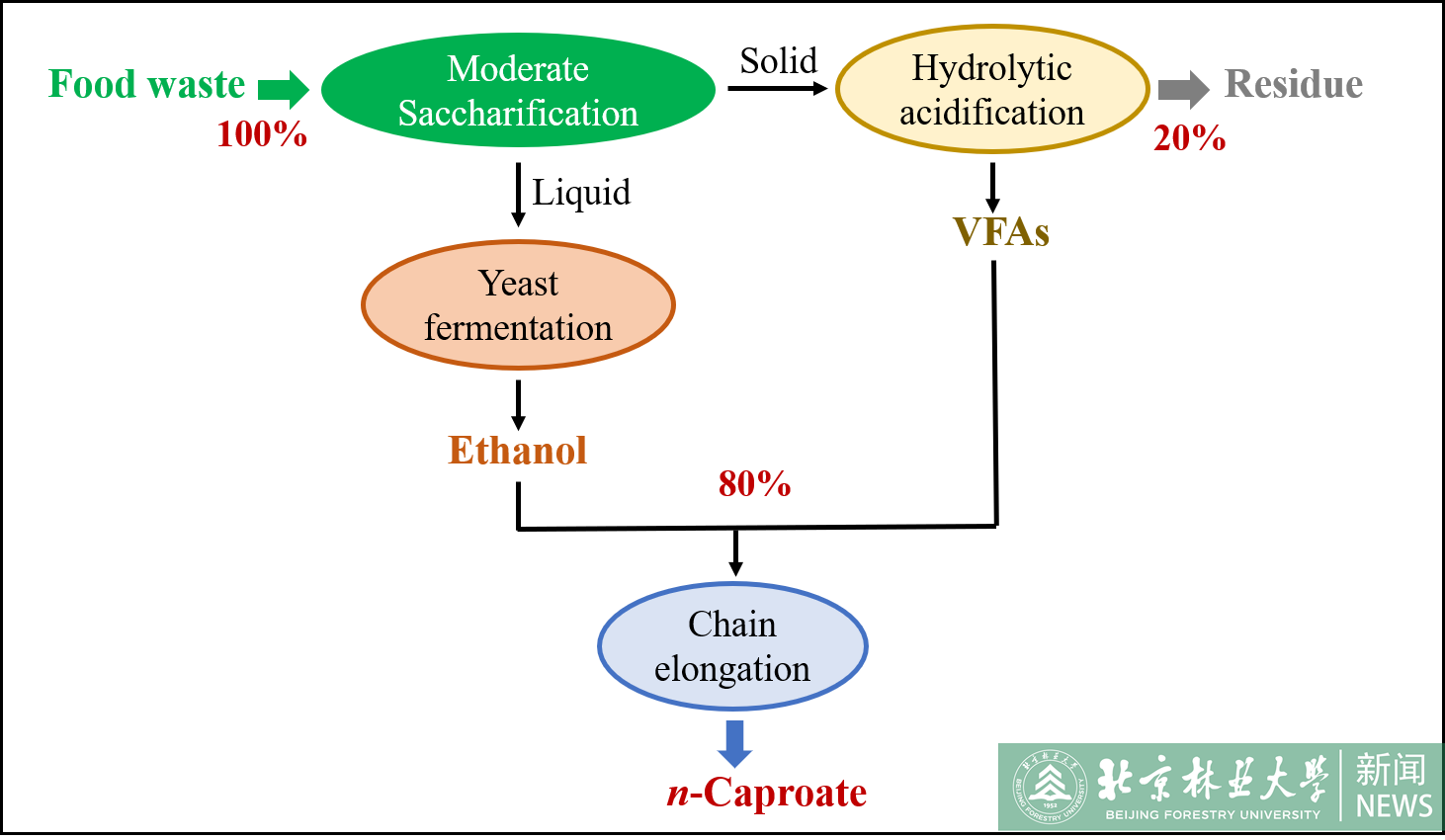Latest news
Lately, the top journal in Environmental science and ecology Bioresource Technology(Q1, IF=11.889) published the research result entitled "Advanced treatment and valorization of food waste through staged fermentation and chain elongation" by the research group led by Professor Zhang Panyue from the College of Environmental Science and Engineering, which provides a reference for the advanced treatment and efficient utilization of food waste.
The huge production of food waste has become a global issue, which caused huge pressure on the environment. Globally, nearly 1.3 billion tons of food are thrown away every year, making up about 44% of the world’s solid waste. Food waste is a valuable feedstock and many waste corporations compete intensively with each other to obtain it. Fats and oils from food waste are usually recycled for biodiesel production. The residual food waste with rich organic matters is still a great substrate for anaerobic fermentation. Please note that the characteristics of food waste are highly variable with location, season, and storage time, which complicates the management of processes. So, it is necessary to develop new and cost-effective technologies to utilize food waste.

A novel valorization approach of food waste via staged fermentation and chain elongation was proposed in the research. Food waste was moderately saccharified, saccharification effluent was fermented to produce ethanol and saccharification residue was hydrolyzed and acidified to produce VFAs. The yeast fermentation effluent and hydrolytic acidification effluent were sequentially performed for chain elongation. Ethanol and volatile fatty acids from staged fermentation were suitable for direct chain elongation and the n-caproate production was 184.69 mg COD/g VS when yeast fermentation effluent to hydrolytic acidification effluent ratio was 2:1. Food waste was deeply utilized with an organic conversion of 80%. The relative abu
The first author of the paper is Wang Qingyan, PhD student from the College of Environmental Science and Engineering, and the corresponding author is professor Zhang Panyue . Beijng Forestry University is the signature unit of the first author.
This work was financially supported by the National Natural Science Foundation of China (51578068) and Bayu Scholar of Chongqing.
Paper link: https://doi.org/10.1016/j.biortech.2023.129286










